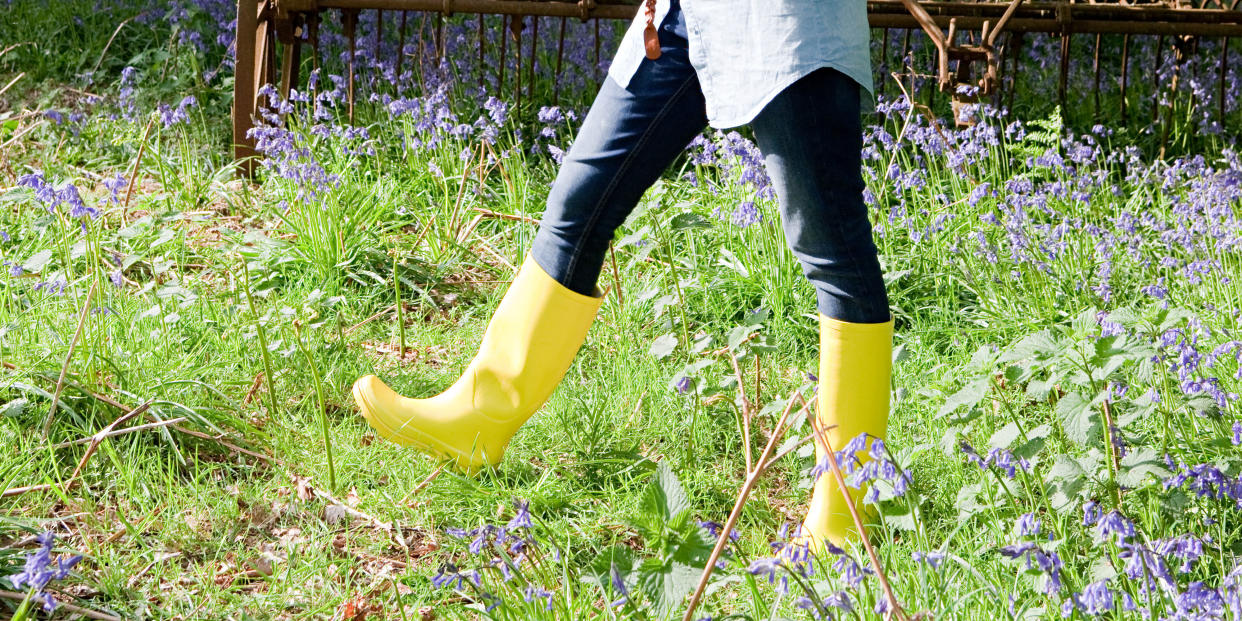I went on a walking and mindfulness retreat and this is what it did to my stress levels

By 2020, the World Health Organisation predicts that work-related stress, burnout and depression will top the list of the world's most prevalent diseases. And while a little stress from time-to-time is inevitable for most, we need to take steps to protect our mental health when small amounts of stress become something much bigger.
Personally, I struggle to find the time to disconnect from whatever's going on around me. Headaches, an irritated gut and trouble sleeping often crop up when I'm under pressure. Thankfully, I took part in a four-day walking and mindfulness retreat with the Sharpham Trust, a small charity that promises to "connect people with nature and foster mindfulness and wellbeing".
Set amongst a stunning 550-acre estate on the River Dart in South Devon, Sharpham House is a Grade 1-listed mansion at the centre of the Sharpham Estate. The retreat offers guided meditation sessions and daily walks in settings such as Dartmoor, Devon's coastal paths and Sharpham Estate (which average seven to eight miles).
During and after the retreat, I definitely felt less stressed and I noticed several other key improvements with my body and how I felt mentally. My headaches became non-existent, my digestion improved and I felt calm and relaxed.
Here's what I took away from my trip...
1. Walking outdoors is a definite mood booster
One brisk walk a day is enough to cut the risk of early death by as much as 15%, according to Public Health England. And if this alone isn't enough to persuade you to take a stroll, getting outdoors is also more likely to improve your mood than staying sedentary for several hours.

Linda Vincent, the course leader, pointed out that walking is beneficial for us as it brings fresh air into our lungs, helps deepen our breathing, expands our awareness of what's around us and of course provides daily exercise. "It can also help with stress levels and sleep patterns, especially if we focus on the act of walking and being with each moment as we walk."
2. Press the off switch
With technology at our fingertips, it's by no means easy to disconnect. A study by the University of Hamburg found that checking and answering work emails outside work hours, elevates a person's stress levels. At Sharpham, you're encouraged to turn off all your devises during your stay. This is so you can unwind and relax without being interrupted by emails, texts and phone calls.
Nigel Ohlson, walking group leader and cognitive behaviour therapist, explains: "The way we live is hugely damaging to our mental health. There's an epidemic of both anxiety and depression along with other types of mental health problems. We need to ween ourselves off our phones and computer games need to carry health warnings."
He says there's actually a condition known as nature deficit disorder. "Its sometimes regarded as a joke, but it's very real. We need to prioritise time to go for walks in natural and beautiful places. The experience can be transformative."
3. Incorporate mindfulness into each day
Being at Sharpham reminded me how important it is to try and learn to live a little bit more in the moment. A good way to do this is to start incorporating mindfulness into our daily lives. Linda suggests trying it with breakfast (or any other habitual activity).

"This is a meal that's often hurried. We may be reading the paper, trying to get the kids ready for school or watching TV as we eat. To bring mindfulness to this meal, you can slow down the eating process a little by putting your spoon down between mouthfuls and chewing your food more thoroughly. This has many benefits. The saliva in your mouth is the beginning of the digestive process, so by chewing your food well it gives your digestive system a good start. Also, we taste the food more by bringing our awareness to it."
4. Embrace vegetarian food
Reducing your intake of meat and embracing a vegetarian diet can be beneficial for your health. In fact, a recent study found that part-time vegetarians who ate more meat-free meals and extra fruit and vegetables were more likely to keep weight off and almost halved their obesity risk. The vegetarian home-cooked meals at Sharpham are healthy and nourishing, not to mention delicious and is mostly home-grown or locally sourced.
From £315, full board for three nights. For further information or to make a booking visit sharphamtrust.org
You Might Also Like

